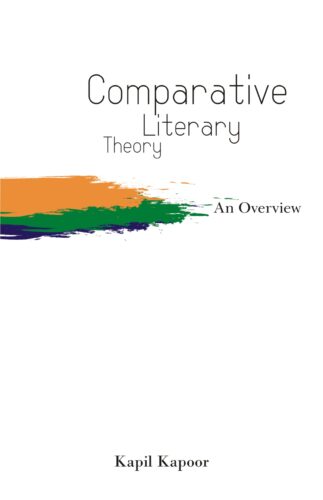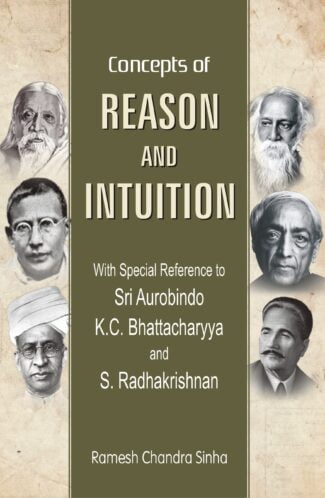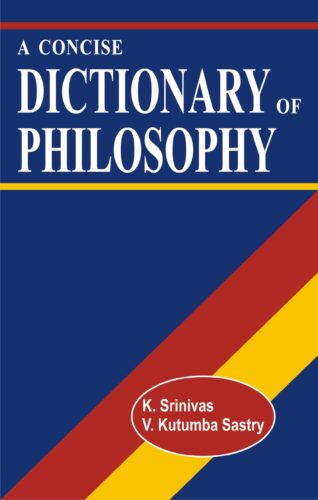Showing 161–170 of 1165 results

Two centuries of British rule gave English educated Indians a peculiar mindset that tended to undervalue their native ethos and moorings, and make English culture more attractive. This tendency is called colonial syndrome. This book attempts to define and elucidate this syndrome and its ill effects, and suggests means to contain and overcome it.
Two centuries of British rule crystallized in the minds of English educated Indians a peculiar mindset that tended to undervalue their native ethos and moorings, and make English culture more attractive. This tendency is called the colonial syndrome. This syndrome has infected the modern Indian elite, who abandon their cultural roots and imitating the Western ways. This situation has drained them off their intrinsic creative capabilities and rendered them less likely to make any significant original contributions to nation building.
This book, an outcome of Prof. K. Ramakrishna Raos work as a National Fellow of Indian Council of Social Science Research (ICSSR), attempts to define and elucidate this syndrome and its ill effects on the modern Indian mindset, and suggests means to contain and overcome it. It alerts people and the leadership about the negative and cascading effects of colonial syndrome, and pleads for Indianization of education, philosophy and psychology, among others in the country. Mahatma Gandhis concept of svadeÁ is the driving force here. It has no negative attributes, only positive self-assertion for common good.
Colonial Syndrome goes on to analyses Gandhis concept of svadeÁ, and attempts to make clear the difference between education in India and Indian education, Indian philosophy and philosophy in India, and psychology in India and Indian psychology and emphasizes that India had its own unique standing on education, philosophy and psychology which needs to be revived and nurtured for fast social and economic development.

This work highlights the Dharmashastra essentials by listing the major authors with their biographies, titles and their dates of composition, published editions and commentaries. It shows how Dharmashastra works have influenced the Indian way of life.
Dharmashastra is not just a corpus of scriptural texts. It is rather a genre, in its own right, of writings comprising prescriptive codes of righteous conduct in different spheres: whether familial, societal, ritualistic, legal, or even political. For the first time, this book offers a quintessential view of the Dharmashastra (Smriti) literature. Which today, along with its digests and commentaries, looks like a vast reservoir of literary works that have been accumulating over the centuries since their legendary beginnings with Manu. Designed primarily for reference, this Companion is styled and structured to bring forth the Dharmashastra-essentials in the quickest time. Listed here, alphabetically, are the major authors with their biographical sketches. And, these besides, the titles, together with descriptive details of their thematic content, dates/probable dates of their composition, published editions and commentaries their upon. Also included here are as many as 12 appendices which, in their totality, embody Dharmashastra-based information on geography, flora and fauna, mixed castes/tribes, neo-Smriti schools, and the kind of relation Smriti literature has with the Mahabharata, Puranas, and Tantra, among other aspects. Professor Banerjis book not only tries to show how Dharmashastra works are representative of the ancient/medieval political, social and cultural milieus, but is also a painstaking attempt to gauge their influence in conditioning the Indian way of life and psyche. Supported by an extensive glossarial index of Smriti literature, it is indisputably a valued companion to the Dharmashastra-specialists, Indologists and the scholars of ancient/medieval Indian sociology.

This book delves deep into the growth of poetics, theory of literature, literary artefacts, aesthetics of literature as an art form, and dramaturgy and philosophy of literature. Cultures have given forms as their typical expressions for India great epics, for Greece tragedies, and for England lyrics.
“Two cultures of the world — Greek and Indian — have nourished literature. While the contemporary Western thinking is rooted in Greek thought, especially of Socrates, Plato and Aristotle, and percolated down to the modern European languages with the advent of Christian thought, the multilingual Indian literary tradition has its base from the classical Tamil, Pali, Prakrt and Sanskrit.
Though cultural specificity marks these two traditions off from each other, the universal human condition that finds expression in all literatures binds them together. This book delves deep into the growth of poetics, theory of literature, literary artefacts, aesthetics of literature as an art form, and dramaturgy and philosophy of literature.
Cultures have given forms as their typical expressions — for India great epics, for Greece tragedies, and for England lyrics. Similarly, different ages of a culture find expression in different forms — Elizabethan age of England in lyrics, sixteenth-seventeenth centuries in drama, eighteenth century in prose, and nineteenth century in novel. India’s genius is in epics and its expression unfolds in sravya-preksa compositions, being singable poetry as its preferred form.
This book must serve pretty useful for students and teachers of literature. Also, an invaluable collection for researchers in literature.”

This book delves deep into the growth of poetics, theory of literature, literary artefacts, aesthetics of literature as an art form, and dramaturgy and philosophy of literature. Cultures have given forms as their typical expressions for India great epics, for Greece tragedies, and for England lyrics.
“Two cultures of the world — Greek and Indian — have nourished literature. While the contemporary Western thinking is rooted in Greek thought, especially of Socrates, Plato and Aristotle, and percolated down to the modern European languages with the advent of Christian thought, the multilingual Indian literary tradition has its base from the classical Tamil, Pali, Prakrt and Sanskrit.
Though cultural specificity marks these two traditions off from each other, the universal human condition that finds expression in all literatures binds them together. This book delves deep into the growth of poetics, theory of literature, literary artefacts, aesthetics of literature as an art form, and dramaturgy and philosophy of literature.
Cultures have given forms as their typical expressions — for India great epics, for Greece tragedies, and for England lyrics. Similarly, different ages of a culture find expression in different forms — Elizabethan age of England in lyrics, sixteenth-seventeenth centuries in drama, eighteenth century in prose, and nineteenth century in novel. India’s genius is in epics and its expression unfolds in sravya-preksa compositions, being singable poetry as its preferred form.
This book must serve pretty useful for students and teachers of literature. Also, an invaluable collection for researchers in literature.”

This book articulates the philosophical thought of the twentieth-century Indian philosophers Sri Aurobindo, K.C. Bhattacharyya and S. Radhakrishnan. It provides a profound understanding of Reason and Intiution while giving admirable understanding of other important metaphysical and religious problems.
This work is a systematic and critical study of two most important problems of philosophy Reason and Intuition. The philosophical thought of the twentieth-century Indian thinkers articulates fresh ideas. Though they accept the metaphysical doctrines of Vedànta, one finds a good deal of originality in their world-views. The great thinkers are fully aware that unless they interpret and formulate the traditional truths in the modern framework of ideas, they would cease to inspire. There seems to be a distinct change in their views concerning man’s existence in the world.
The book embodies a fresh approach towards critical evaluation of some theories and gives valuable insights. It attempts to make relevant comparisons of the views of Indian thinkers with those of some of the eminent thinkers of the West.
In the detailed study of Sri Aurobindo, K.C. Bhattacharyya and S. Radhakrishnan, the author shows, not only a profound grasp of the concepts of Reason and Intuition, but also the admirable understanding of other important metaphysical and religious problems.
This book cannot miss the sight of students of philosophy, researchers and scholars.

This book articulates the philosophical thought of the twentieth-century Indian philosophers Sri Aurobindo, K.C. Bhattacharyya and S. Radhakrishnan. It provides a profound understanding of Reason and Intiution while giving admirable understanding of other important metaphysical and religious problems.
This work is a systematic and critical study of two most important problems of philosophy Reason and Intuition. The philosophical thought of the twentieth-century Indian thinkers articulates fresh ideas. Though they accept the metaphysical doctrines of Vedànta, one finds a good deal of originality in their world-views. The great thinkers are fully aware that unless they interpret and formulate the traditional truths in the modern framework of ideas, they would cease to inspire. There seems to be a distinct change in their views concerning man’s existence in the world.
The book embodies a fresh approach towards critical evaluation of some theories and gives valuable insights. It attempts to make relevant comparisons of the views of Indian thinkers with those of some of the eminent thinkers of the West.
In the detailed study of Sri Aurobindo, K.C. Bhattacharyya and S. Radhakrishnan, the author shows, not only a profound grasp of the concepts of Reason and Intuition, but also the admirable understanding of other important metaphysical and religious problems.
This book cannot miss the sight of students of philosophy, researchers and scholars.

This dictionary serves as an immediate reference book to the teachers and the students of philosophy and also to the general readers. It covers as many as seventeen hundred entries that include the most commonly used philosophical terms of the East and the West and the brief biographies of prominent philosophers of the Orient as well as the Occident.
This dictionary serves as an immediate reference book to the teachers and the students of philosophy and also to the general readers. It covers as many as seventeen hundred entries that include the most commonly used philosophical terms of the East and the West and the brief biographies of prominent philosophers of the Orient as well as the Occident.

This dictionary serves as an immediate reference book to the teachers and the students of philosophy and also to the general readers. It covers as many as seventeen hundred entries that include the most commonly used philosophical terms of the East and the West and the brief biographies of prominent philosophers of the Orient as well as the Occident.
This dictionary serves as an immediate reference book to the teachers and the students of philosophy and also to the general readers. It covers as many as seventeen hundred entries that include the most commonly used philosophical terms of the East and the West and the brief biographies of prominent philosophers of the Orient as well as the Occident.
The aim of this book is to achieve a proper theoretical understanding of democracy through philosophical explorations. By these explorations we want to reach some unitary decision on at least three things. The first one involves the concept of democracy. The next one is concerned with the purpose of democracy. The final one is concerned with what is necessary for ensuring and developing democracy in a state or society in the absence of which democracy gets threatened. We will explore and analyze the interconnections between these three dynamics.

This authoritative sourcebook reflects the extensive contributions of K.R. Rao over sixty years of professional engagement, blending theory and empirical research, leadership and scholarship, and classical and contemporary perspectives of Eastern and Western thoughts in a trans-disciplinary setting.
Consciousnes, Gandhi and Yoga explores the cross-cultural and interdisciplinary Odyssey of K. Ramakrishna Rao spanning over a period of sixty years. Rao’s journey is a voyage of discovery of hidden treasures of consciousness in both the East and the West; and this volume is an authoritative sourcebook detailing and discussing that voyage by scholars from around the world. We find here reflections on the extensive contributions of K.R. Rao which contain a rare, and in some ways unique, blend of theory and empirical research, leadership and scholarship, and classical and contemp-orary perspectives of Eastern and Western thoughts in a trans-disciplinary setting.
Ramakrishna Rao has carried out extensive empirical research collecting data on hidden human potentials and is engaged in providing for them appropriate conceptual framework and theoretical base in cross-cultural consciousness studies. Further, he creatively anchors Gandhian thought and practices to the current developments in consciousness studies.
The authors include Prof. Rao’s colleagues and contemporaries scattered around the globe and experts in consciousness studies, Gandhian thought, Yoga and parapsychology. They provide interesting insights into the life and work of Prof. Ramakrishna Rao.
The present volume is offered as an academic tribute as Prof. Rao crosses the 80th milestone in life’s journey and completes sixty years of professional engagement as a teacher and researcher.
| There are no products |